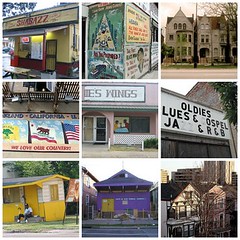The Rolling Jelly Series (7): Celebrations & Violence
[Here is Part 7 of the Rolling Jelly Series.]
There’s a good deal of violence in New Orleans, and it’s not all that unusual for that violence to unfold in what seems like a strange context: during parades. In an incident earlier this year, for example, an 18-year-old guy shot up a funeral parade, wounding one man and killing another, before being shot himself by police.
Jelly Roll Morton and the other musicians Alan Lomax interviewed talked quite a bit about parades, jazz funerals, second lines – and, in fact, the violence that accompanied those events, from time to time.
Let’s begin with what Morton had to say to Lomax (in their 1938 conversations) about jazz funerals around the turn of the 20th century. "Of course, everybody in the city of New Orleans was always organization-minded, which, I guess, the world knows,” he told Lomax. “A dead man always belonged to several organizations.” These “clubs, and, uh, we'll say, secret orders,” were instrumental in organizing and funding the funeral, and rounding up a band to perform. (The musicians in such bands, Morton pointed out, did not make the same kind of money that a piano player such as himself could make.) The dead man would be buried during the day, never at night, and in a vault, never “in the mud.”
As the mourners left the cemetery, “the band would get ready to strike up,” Morton continued. “They'd have a second line behind 'em, well, maybe a couple of blocks long, with broomsticks, baseball bats, and all forms of ammunition, we'd call it, to combat some of their foes when they come to the -- to the dividing line." Then Morton stopped talking and played "Didn't He Ramble."
But Lomax, not surprisingly, wanted to know what happened with the baseball bats.
"Well, on the way home,” Morton said, “everything was sad when they'd be playing the dead march. There would be no fights, no trouble. But on the way back, they had boundary lines. … When they got to a dividing line, which was supposed to be their district, they'd better not cross. If they do, they would be beaten up. And sometimes they were beaten up so bad that they had to go to the hospital. That's the way it always ended in New Orleans."
<-- Part 6. Part 8 -->



0 Comments:
Post a Comment
<< Home